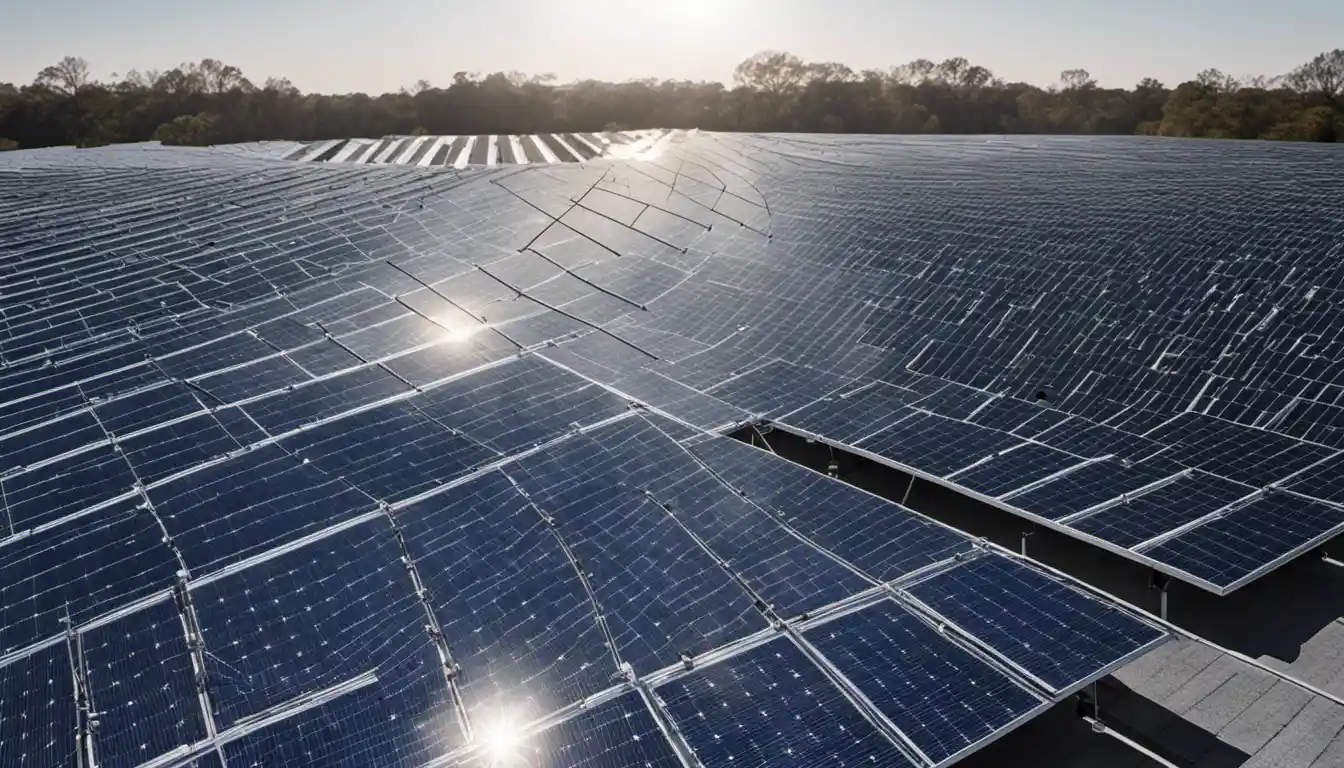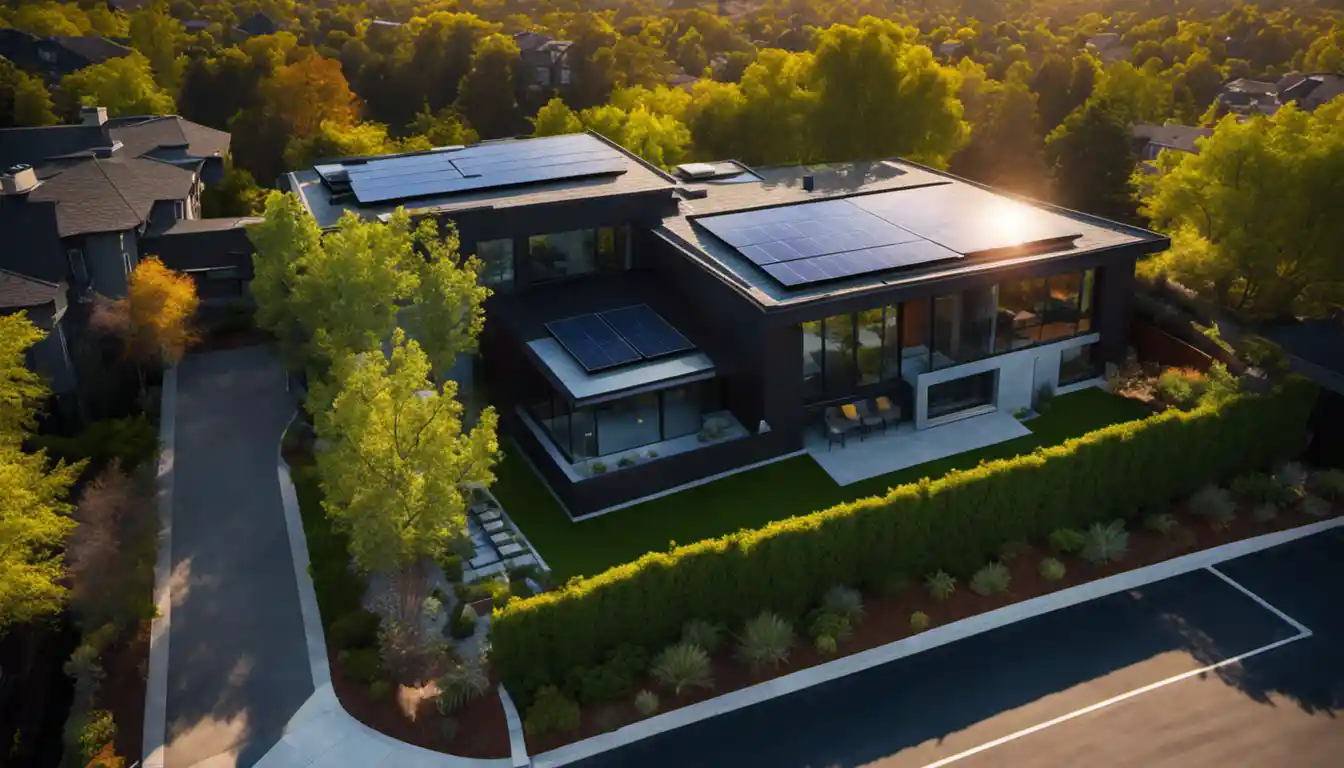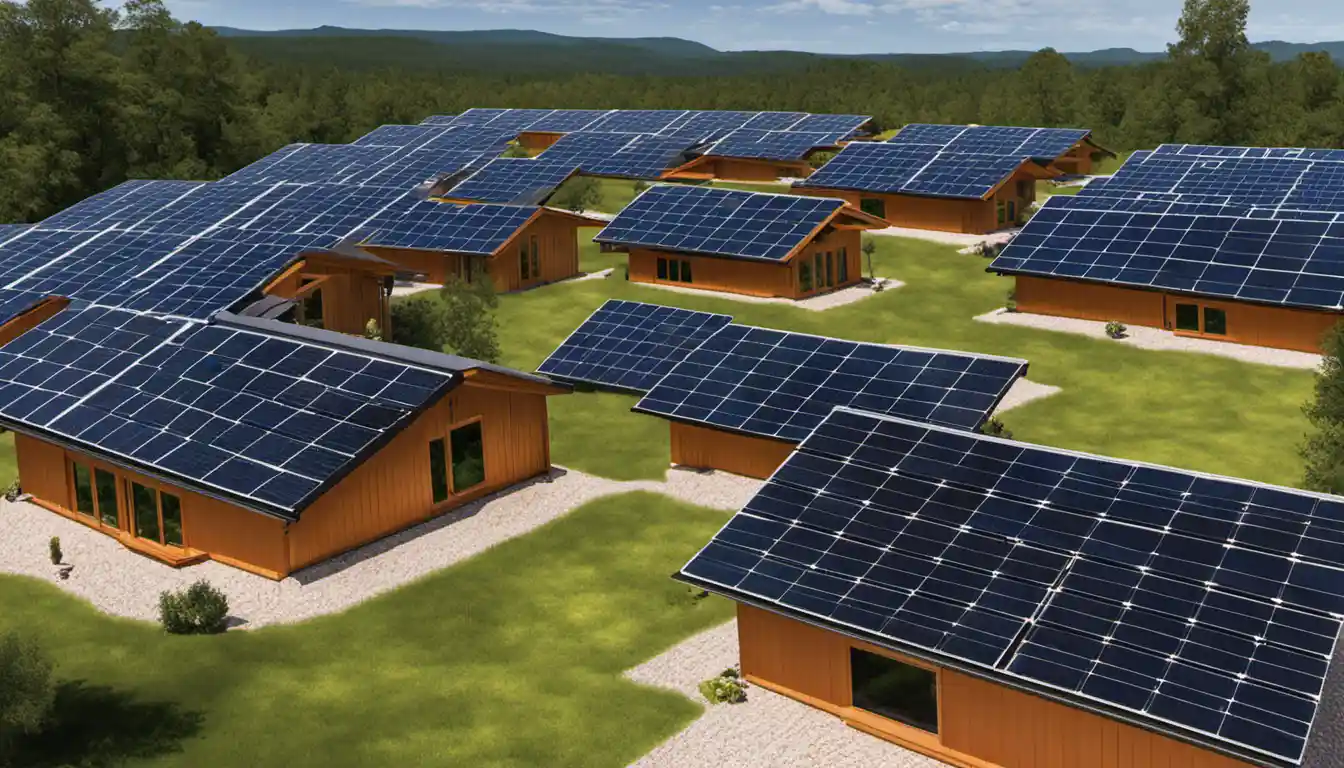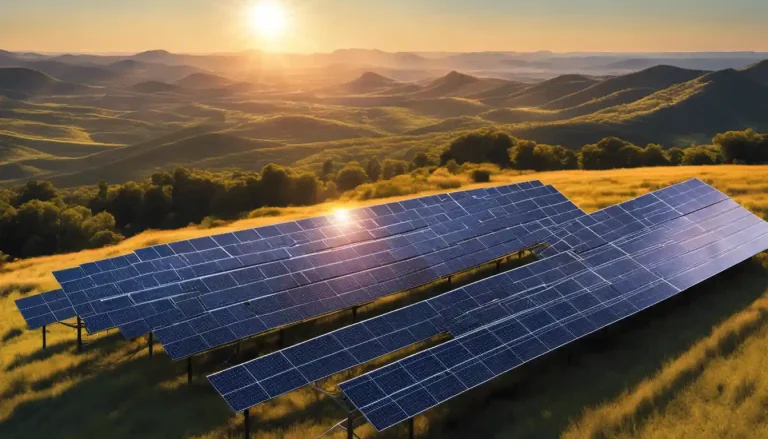Understanding Hybrid Solar System
A hybrid solar system, also known as a solar-plus-storage system, combines solar power energy generation with battery storage. This system generates energy from solar panels during the day, and stores excess energy in a battery for use during the night or cloudy days, making it more efficient and reliable compared to a standalone solar system.
Key Components of a Hybrid Solar System
A hybrid solar system consists of three key components. First, solar panels that absorb sunlight and convert it into electricity. Second, battery storage that stores any surplus electricity produced by the panels. Finally, there’s a grid connection that serves as a backup, supplying power when the solar system can’t meet your energy demands.
See also: How to Install Hybrid Solar System: A Comprehensive Step-by-Step Guide
How Does a Hybrid Solar System Work?

Here’s where it gets interesting. During the day, the solar panels in a hybrid system generate electricity which is utilized for powering your home. Any surplus power is stored in the battery for future use. When your panels don’t produce enough electricity, perhaps on a cloudy day or at night, that’s when your battery steps up, discharging the stored energy. Also, if both your panels and battery fall short, you still wouldn’t be left in the dark since you’re connected to the grid.
See also: Best Hybrid Solar System: Your Ultimate Guide to the Top Options on the Market
Advantages of a Hybrid Solar System
There’s a lot to love about hybrid systems. They’re cost-effective, reducing your energy bills by relying less on the grid. They provide peace of mind as the stored energy can be used during a power outage. They’re flexible and scalable, allowing you to add more panels or increase your battery storage depending on your increasing energy demands. On top of all this, they lead to environmental sustainability by using clean, renewably sourced power, hence contributing to the fight against climate change. Learn more about these amazing perks in our previous feature titled Sciencing it up: The Advantages of a Hybrid Solar System.
Drawbacks of a Hybrid Solar System
However, everything that shines isn’t always gold, and the same goes for hybrid solar systems. Storage of energy can sometimes pose a challenge due to the limited capacity of batteries. Financial cost is another factor, as this system requires investment in not only solar panels but also batteries and a grid connection. Maintenance of these systems is also a key consideration. More detailed information about these considerations can be found at /disadvantages-of-hybrid-solar-system.
Factors to Consider: Is a Hybrid Solar System Right for You?

Before jumping into the world of hybrid solar systems, it’s crucial to examine your energy consumption, budget, and geographical location. If your electricity usage is high, especially during the day, then a hybrid system can be a great fit. Likewise, you need to arm yourself with a realistic budget that covers the cost of installation, maintenance, and potential repairs.
The Cost of a Hybrid Solar System
Expressed numerically, the cost of a hybrid solar system largely depends on its size, the type of battery storage, installation charges and other related factors. The investment could feel steep initially, but the long-term energy savings will pay off over time, presenting real value for money. Check out this guide which delves into a more comprehensive breakdown of prices at /hybrid-solar-system-price.
Batteries for Hybrid Solar System: What to Choose?
Choosing the right battery for your hybrid system is fundamental. There are several types, including lead-acid and lithium-ion batteries. While the latter boasts of a longer lifespan, the former is more cost-effective. Consider factors like efficiency, cycle life, installation, and disposal while choosing your battery.
The Concept of an Off-grid vs. Hybrid Solar System

Comparing hybrid and off-grid solar systems is essential to gauge what works best for you. An off-grid system doesn’t rely on the grid for electricity, while a hybrid one does. Both systems come with their unique set of pros and cons, and your decision largely hinges on your circumstances.
Making an Informed Decision: Is a Hybrid System Right for You?
While there’s plenty of material available on “what is a hybrid solar system” and “how does a hybrid solar system work”, ultimately the perfect system is the one that suits your individual requirements the best. Get expert advice, analyze your unique circumstances, and weigh the costs against the potential energy savings before taking the leap.
Wrapping Up: The Future Perspective of Hybrid Solar Systems
In conclusion, our craving for sustainable energy solutions makes the future of hybrid solar systems brighter than ever. As technology advances, we can expect the efficiency, affordability, and capacity of these systems to get even better. So, that’s it from my end folks; an account straight from two decades in the solar energy industry exploring the exciting world of hybrid solar systems.



